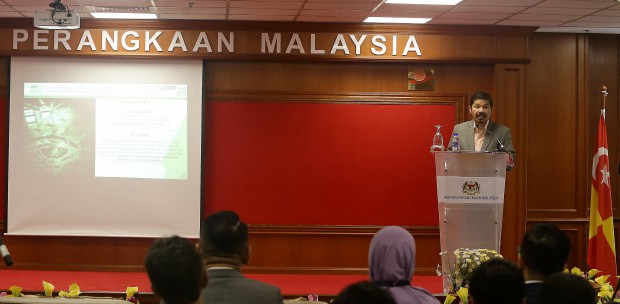KUALA LUMPUR: More than a third of employed graduates in Malaysia are in semi-skilled and low-skilled jobs, the Department of Statistics Malaysia's (DoSM) latest report on the labour market said.
Semi-skilled workers include clerical support workers; service and sales worker; skilled agricultural, forestry, livestock and fishery workers; craft and related trades workers and plant and machine operators and assemblers.
Low-skilled workers are those employed in elementary jobs.
Department of Statistics Malaysia (DoSM) labour market review for the first quarter of 2024 report said underemployment in Malaysia increased in the January to March period of 2024 albeit at a slower rate, as skills-related underemployment and time-related underemployment both grew.
The number of people experiencing time-related underemployment, working less than 30 hours per week but willing and able to work more, rose 0.4 per cent, making up 175,000 thousand individuals for the first quarter of 2024 (1Q24), compared to the same quarter last year.
However, DoSM reported that the rate of time-related underemployment remained at 1.1 per cent during the same period.
Meanwhile, DOSM reported that skill-related underemployment, representing over a third of employed individuals with tertiary education, decreased by 0.3 percentage points to 37.4 per cent compared to the previous year.
"Given data availability from the Labour Force Survey (LFS), this indicator is measured using proxy variables of occupation and educational attainment," it added.
DOSM clarified that in 1Q24, the number of individuals experiencing skill-related underemployment increased by 1.3 per cent, adding another 24,100 individuals.
However, the growth rate was slower compared to the same quarter of the previous year.
In total, there were 1.93 million persons in skill-related underemployment during this period.
DoSM reported that total employment in Malaysia grew by 2.1 per cent in the January to March period to 16.4 million, with most states experiencing positive year-on-year growth except for Negeri Sembilan, Pahang, W.P. Kuala Lumpur, and W.P. Putrajaya.
Most employed persons were in the semi-skilled occupations category, comprising a share of 58.9 per cent of total employment.
The number of employed persons in this category increased by 1.6 per cent year-on-year (+153.3 thousand) to 9.67 million persons during Q1 2024.
Nearly half of employed persons in the semi-skilled category were concentrated in the occupation of Service and sales workers (43.2 per cent), encompassing 4.18 million persons
UniKL Business School economic analyst associate professor Dr. Aimi Zulhazmi Abdul Rashid said the data indicated an increasing inclination among individuals to opt for longer part-time work hours.
"Hiring will soon change with many employers switching to part time employees, which actually reduce overall company overhead through savings like smaller expenditures in employees fringe benefits, such as medical expenses are no longer mandatory budget for part timers. "Workers also have the flexibility to undertake a number of jobs on a part time basis, allowing time flexibility and expanding their income sources," he told the Business Times.
He observed that this trend has already transformed the labour market in developed countries and is rapidly impacting developing countries as technology becomes increasingly influential and prominent in people's lifestyles.
Furthermore, Aimi highlighted that jobs in the digital economy such as e-hailing, food delivery, drop-shipping, and online services have been major contributors to substantial job creation over the past two years.
"Regulators and policy makers have to be proactive and take immediate actions to ensure the labours laws are updated in line with the changing trends," he clarified.





